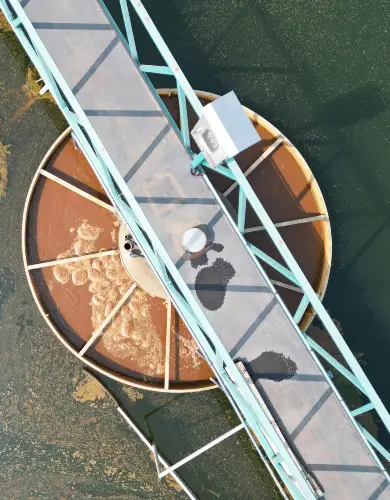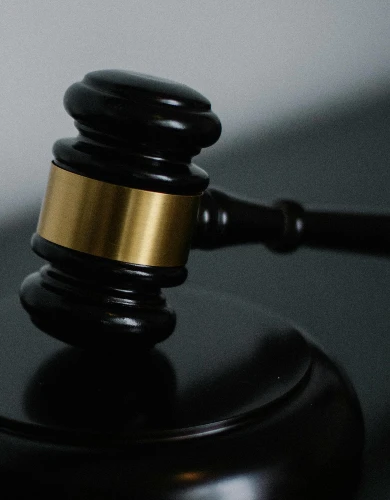Ofgem Energy Regulation and Enforcement
With the energy price cap currently dominating the news, you may have heard the name Ofgem banded around a lot. We’ve realised that many readers don’t know who Ofgem is and what they do, so in this article, we explore it in more detail.
What is Ofgem?
Ofgem is a non-ministerial department tasked with overseeing and regulating any company that operates in the gas and electricity networks industry.
As an industry regulator, it is a similar setup to the following:
Ofgem controls pricing and regulations to protect the interests of future gas and electricity consumers, which is why they are the entity behind the energy price cap.
To protect consumers, Ofgem promotes:
- The security of energy supply and sustainability
- Value for money
- Implementing regulation
- Supervising markets and competition
- Delivering government schemes
Ofgem helps the energy industry to make constant environmental improvements as well as helps to establish government initiatives to hit carbon and climate targets.
For more information visit our guide comparing the approach of Ofwat and Ofgem.
What does Ofgem stand for?
Ofgem stands for the “Office of Gas and Electricity Markets”.
What does Ofgem cover?
As an industry regulator, Ofgem covers:
Recording complaints regarding the energy market and infrastructure
Ofgem doesn’t accept complaints regarding individual business energy suppliers but does record the number of complaints made against each one.
Ofgem then publishes these data sets to the public, so consumers can check the league table to see which energy suppliers have the most complaints and help them decide who to switch to next.
Administering price caps
Ofgem administers the energy price cap. The price cap is a limit on how much energy suppliers can charge for electricity and gas under their standard variable tariffs. Notably, Ofgem doesn’t provide a business energy price cap.
The energy price cap was implemented in 2019 to prevent suppliers from profiting excessively from customers who do not regularly compare and switch energy suppliers.
Providing support when energy suppliers fail
A record amount of energy suppliers went bust in 2018 and 2019, leaving thousands stranded.
When a commercial energy or business gas supplier stops trading, Ofgem steps in and provides a safety net to protect consumers’ energy supplies and the existing credit balances of their old accounts.
The process is called SoLR, which stands for Supplier of Last Resort – this will then assign a new supplier within days and transfer across previous credit without any interruption of energy supplies.
Overseeing environmental and social schemes
Ofgem ensures energy suppliers conform and comply with schemes to make the energy market more environmentally friendly and sustainable.
They also focus on procedures to make the energy market more accessible and affordable for the most vulnerable consumers who may struggle to make ends meet.
An example is the Winter Fuel Payment scheme.
Determines what appears on energy bills
If you’ve ever lived abroad, you may have noticed that energy bills are broken down in different ways. In the UK, Ofgem standardises this breakdown and what additional information is included.
Energy suppliers must provide details on:
- Personal projection – how much you’ll spend if you stay on the same tariff over the year
- Your domestic/business energy consumption
Publishes guides and energy market information
To empower the consumer to make a clear, informed decision when switching business energy suppliers, Ofgem publishes detailed information about energy suppliers and informative energy guides.
What can Ofgem enforce?
Ofgem enforces compliance among various businesses and organisations in the British energy industry.
In this section, we summarise the rules that Ofgem enforces and the actions it can take in cases of non-compliance.
Enforcing licence conditions
Ofgem licenses various for-profit enterprises involved in the British energy industry, including:
- National Transmission System Operator/the National Grid
- Distribution network operators
- Electricity interconnectors
- Domestic and business energy suppliers
- Gas shippers and electricity transmission firms
- Gas transporters and independent gas transporters
Each licence type carries various obligations under the Gas Act 1986 and the Electricity Act 1989.
Enforcing consumer protection
Ofgem monitors the energy market in Britain to ensure the fair treatment of the end users of electricity and gas.
Ofgem publishes any actions it takes on the enforcement and compliance section of its website.
Ofgem can refer breaches of the following Acts to the courts:
- Enterprise Act 2002
- Consumer Rights Act 2015
- Business Protection from Misleading Marketing Regulations 2008
Other Ofgem enforcement
Here, we summarise other key areas of Ofgem’s enforcement of regulations:
- Enforcing competition law – Ofgem can impose penalties for anti-competitive behaviour and abuses of market dominance.
- Enforcing the Green Gas Levy – Ofgem can issue enforcement notices to suppliers if they fail to comply with the Green Gas Support Scheme Regulations 2021.
- Wholesale market integrity – Ofgem is responsible for preventing and reporting wholesale energy market abuse.
Ofgem issued fines
Since its establishment, Ofgem has imposed fines and penalties on energy companies to uphold market integrity and protect consumers. Notable instances include:
- E.ON – £14.5m for prepayment billing failures affecting domestic energy customers.
- Drax – £25m for misreporting biomass sources at its biomass energy facility.
- National Grid – £8m for overclaiming costs in its maintenance programme.
The evolution of Ofgem
Since its establishment, Ofgem has undergone significant changes, adapting to market developments, regulatory needs, and government policies.
Here’s an overview of the distinct stages of Ofgem’s evolution.
Formation and energy deregulation (1999)
Ofgem was formed in 1999 by merging Offer (Office of Electricity Regulation) and Ofgas (Office of Gas Supply).
Its initial focus was on promoting competition within the British energy sector following privatisation. Ofgem worked on deregulating the market, allowing consumers to choose their energy supplier.
Strengthening consumer protections (2000s)
As the competitive energy market matured, Ofgem shifted its focus towards protecting consumers from unfair practices.
Ofgem implemented price controls on distribution and transmission infrastructure operators to keep prices fair for consumers.
It also introduced social tariffs to support vulnerable customers, including those in fuel poverty.
Sustainability and market interventions (2010s)
With growing concerns over climate change, Ofgem began incorporating environmental policies into its regulations, introducing initiatives like the feed-in tariff scheme.
In the mid-2010s, Ofgem adopted a more interventionist approach following concerns over high energy prices. It introduced the price cap to limit supplier prices on default tariffs.
Ofgem also launched the energy switching programme to make it easier for consumers to switch suppliers.
Crisis management (2020s)
The 2021–22 energy crisis, caused by global gas shortages and supplier bankruptcies, led to major reforms:
- Tightened financial resilience checks on suppliers to prevent further collapses.
- Revised the Price Cap formula to respond more quickly to volatile energy markets.
- Enhanced consumer protections, including compensation for outages and improved debt repayment schemes.
The future of Ofgem
Ofgem’s biggest challenge lies in delivering affordable and fair pricing to consumers while facilitating the shift towards a carbon neutral energy grid.
It will continue introducing schemes like the demand flexibility service and smart energy meters to enable the green energy transition.
Ofgem’s official links and contact details:
Ofgem website: https://www.ofgem.gov.uk/
Phone number: 020 7901 7295
Ofgem does not directly handle consumer complaints against licensed energy suppliers; instead, the Energy Ombudsman manages them.

